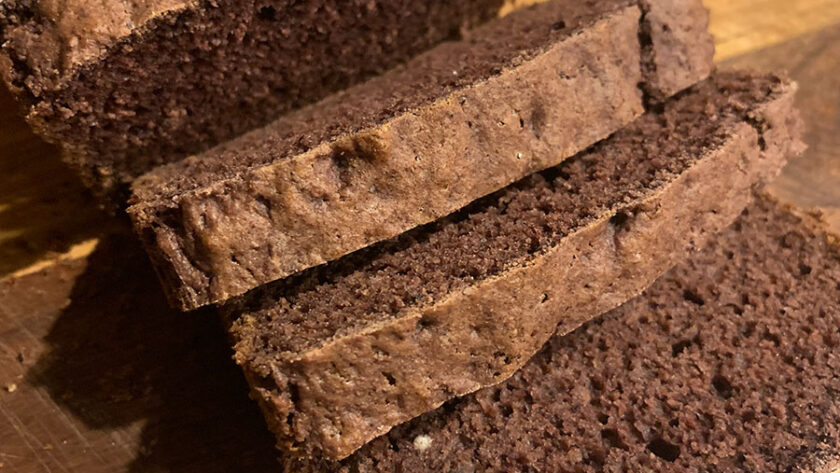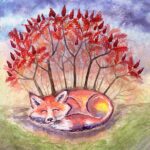
When I was a child, I used to read the Laura Ingalls Wilder books. In her books, Laura spends a lot of time talking about food preservation–slaughtering the pig, making maple sugar, making “head cheese”, sowing crops, cutting hay for the animals, cutting and storing ice in the ice house, threshing wheat, making butter, digging potatoes, and so forth. This was an incredibly important part of the lives of the Ingalls family. The book about Sam Gribley, who runs away to the mountains to live off the land, My Side of the Mountain is very much the same–although its set in a more modern time, Sam spends most of his time talking about providing for his own needs through foraging and trapping. And in each of these books, I’m struck by how much of each of the books are devoted to the basic necessities of human survival: food and shelter. But it wasn’t just that they were preserving food and surviving–it was the manner in which they survived. When Sam talks about his relationship with the wild strawberries, and the loss when the old woman comes and makes him help her pick them all, he describes a sacred relationship. When Laura writes about her relationship with their family’s horses, horses the family depended on for plowing and transportation, the relationship is sacred. When Laura’s family asks neighbors for help for building their home, their home becomes rooted in that community.
The last few generations of Americans–certainly my own– have typically not lived in a society where we have the knowledge (or, often, desire) to physically provide for our any of our own needs. When I grew up, we occasionally ate venison that my uncle hunted, we ate zucchini and other veggies from the garden when they were available, we ate some of mom’s canned sauce or beans, but most of what we ate we purchased. The relationship that most of us have with our food was one of an exchange–hard-earned money in exchange for this or that preserved, packaged good. I think my experiences of our home garden were less common than most children who grew up in the 1980’s–this was the real start of “convenience” foods that required very little work or preparation (TV dinners, heavily processed fast foods, etc.). The 1980s, as John Michael Greer reminds us in his newest book Green Wizardry, were the backlash era against the progress/appropriate tech/homesteading movements of the 1970’s, and unfortunately, pushed Americans further down the path of consumption.
I, like many of my generation and the generation before and generation after me, have grown up in a time where we depend upon others (often, large agribusiness or corporations) for our food (and clothing, shelter, heat, transportation, and livelihoods). And while most of us don’t engage in labor-intensive food production, we are also depending upon a system that has removed our sacred relationship with food. We also exchange our time for money in other kinds of work; some of which is much less fulfilling than growing one’s own food. The food we eat is often mass-produced with unacceptable ethical standards, from pesticide use to shipping with fossil fuels to genetic manipulation to migrant worker rights violations. When we eat that food, we eat of all of the energies that produced it.

The spiritual dimensions of this cannot be understated. When one is eating food that one has not grown/foraged/slaughtered, one is bringing in unknown energetics and processes into one’s own body. That food, if it comes from a big grocery chain, is likely 100’s, if not 1000’s of miles removed from the land one inhabits, which creates energetic distance. Further, one’s relationship with that food is often a constructed image, a brand name product (I’m now reading Chris Hedges’ book, Empire of Illusion, where he talks about the illusion of the image/brand at length). The sacred relationship with food is lost.
I have come to understand that gardening, especially using druidic principles, is all about relationship building; building a sacred relationship with your food. When I grow a pepper in my garden, I have developed a relationship with that plant from the time I planted the seed in February to the early growth of the plant in March while the cold winter continues outside, to the planting and mulching of that plant into my garden in late May. This relationship continues as I
nurture it as it grows into maturity throughout the summer, where flowers and later little green peppers start to emerge. Finally, I wait for that pepper to ripen in early September. At that point, I have an eight-month relationship with that plant. When I eat that pepper, I know where it came from, and just as importantly, I’ve developed an energetic connection with it. When I can that pepper and turn it into salsa or freeze it for later, I am sustaining that relationship over time. When I save the seed for next season, the relationship becomes all the stronger. We are connected; that connection is sacred. That sacred connection extends and extends to all the land–everything becomes more sacred by the simple act of growing and eating one’s own food. The connection is rooted in the time, the hard work, and the co-dependence of you and the plant.

This isn’t a lesson that I would have ever understood had I not started growing–and preserving–my own food. This is a lesson that I’ve come to over a long period of time. I think that people who grow up in a culture where providing for one’s needs is common and where reliance upon the land allows that sacred connection to form from birth. If you read any stories or myths from Native American tribes, you see this in everything that is written. But for someone like me, someone who did not grow up in a culture that nurtured that sacred connection, I had to seek this out and discover it on my own. When the sacred connection occurs, the shift is striking. I’m amazed and filled with wonder each time I set foot in my garden and watch my plants growing. I am filled with reverence and respect with each egg I pull out of my chicken coop. When my tomatoes blighted this year (which I will write about soon), I felt their suffering.
As we move into forty or so years of convenience foods, fast foods, and the like, the skills of food procurement (through growing, trapping, hunting) and preservation (through fermentation, canning, drying, smoking) are not practiced by most of our population. Even for someone like me, who wants to know the skills, learning the old ways requires a lot of resources that aren’t necessarily easy to come by. I think about my meager skills, and despite years of hard effort and learning everything I can, I’d be unable to provide for all of my needs. But as I continue to grow, my sacred connection with the land takes on a new meaning. I am her caretaker, as she is mine. When I take her fruits into my body, I am nourished and blessed. This is the most sacred of sacred connections, and it makes you respect the food down to the last bite.



Thank you for your lovely post! I just wanted to let you know how much what you wrote made so much sense. My partner & I made and grew a veggie and herb garden. Sadly we had to move a week ago, and I actually felt heartsore to leave my plants. So, I took them to replant at my partners mother’s home and blessed them and told them how much they would be loved in their new home. They gave me so much pleasure and I truly felt and feel a deep connection with them.
Janine,
I’m not sure what I would do if I had to leave my plants here–probably the same :). Thanks for sharing your story!
When I was growing up in dairy farm country, we had a garden, like many other people. Canning and freezing were common activities, mostly because fresh produce in the store was more expensive. Unfortunately, gardening was never presented as anything spiritual–mostly it was hard work that people would rather not do. At least that’s how it seemed in my family. Gardening and farming were menial work that most people looked down on. I have been slow to realize the spiritual value and the general satisfaction of producing and gathering food with my own hands. I still avoid weeding pretty much like the plague. But being able to walk out my door, pick berries or some other food, and simply eat it out of hand is a delightful experience. I feel a bit sorry for those who don’t have it.
But being able to walk out my door, pick berries or some other food, and simply eat it out of hand is a delightful experience. I feel a bit sorry for those who don’t have it.
Yeah, these days, its an experience that one needs to find/discover. I’m taking an organic gardening class through my university this fall. Its exciting to see how many people of a college-age generation and older are interested in gardening and really committed. I think things are starting to change!